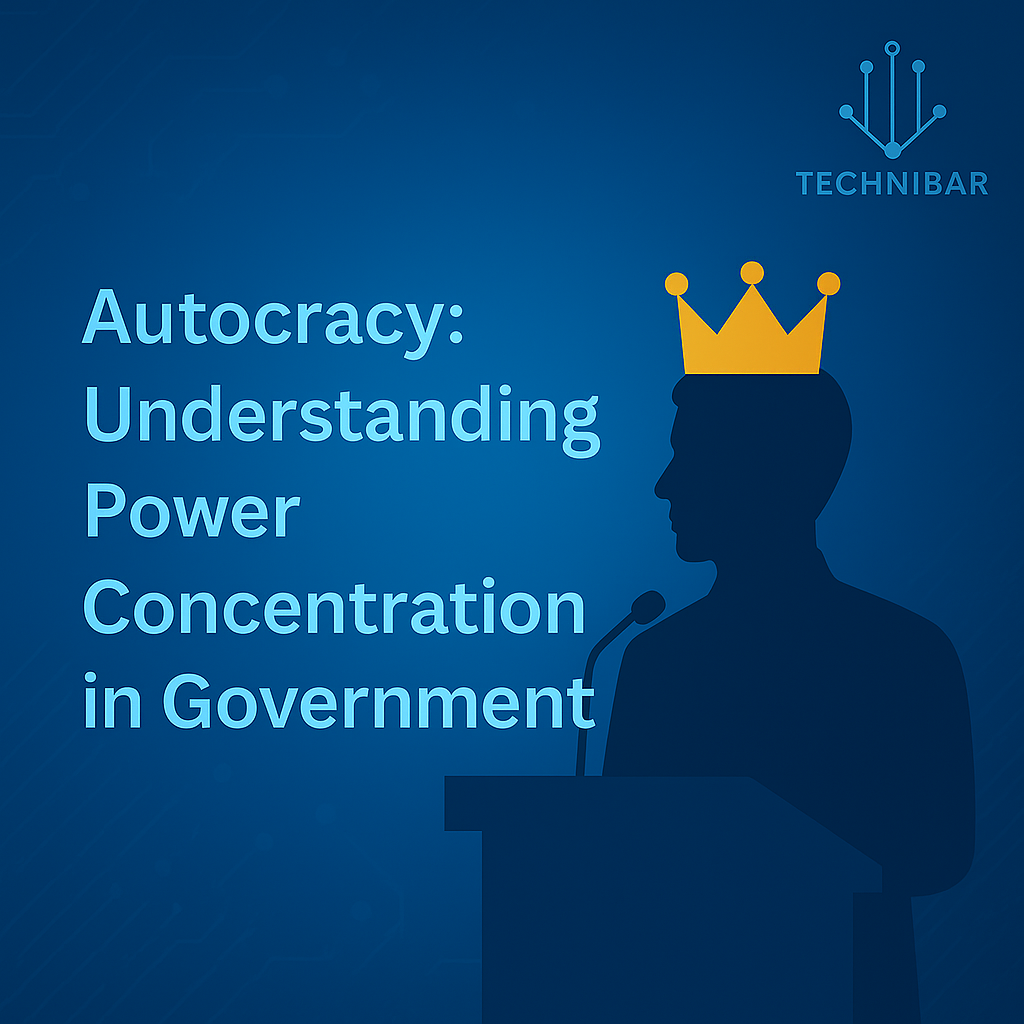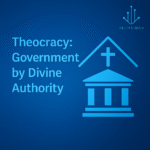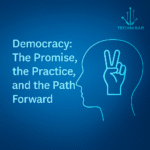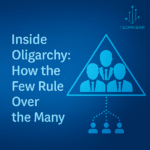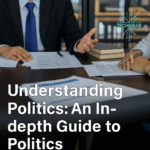Autocracy is when the state has absolute authority in the hands of one person and no substantial constitutional constraints or separation of power. Contrary to democracy in autocracy rule, the concentration of power is in the hands of the one individual or a narrow elite panel. It has been passed through the ages in different forms since the times of ancient monarchies to today’s eternal authoritarian regimes and it is one
of the most influential and sometimes even controversial forms of political structure.
What is Autocracy?
Auto is Greek meaning “self” and kratos means “signifies power or rule” translated to mean rule by one hence the term autocracy. In an autocracy, the decision maker in the system exercises absolute will and does not need consent or endorsement of a legislature, the court or people.
An autocrat can come into power in a number of ways:
Inheritable succession (e.g. monarchs)
- Military coups
- Revolutionary movements
- Electoral manipulation
Autocracies may be extreme, as in a dictatorship, or may be camouflaged in the accoutrements of democracy, e.g. fake elections or faked parliaments.
Autocracy Historical Origins
Autocracy is among the oldest forms of government in the history of man. It is the superior form of politics that happened during centuries until our modern democracies appeared.
Ancient and Medieval Autocracies
Pharaohs of Egypt, Chinese emperors, and Roman Caesars had the positions of absolute leaders.
The Divine right was about monarchs- they were on the throne because God gave them that position.
An interesting case of hereditary autocracy is the Russian Tsars who had total authority until the 20 th century.
The Absolutism Age
The 16th to 18th centuries saw the embodiment of absolute monarchy in the European courts of 16 th century European kings such as Louis XIV of France, who deposited all the political authority in the throne. The romanticized version of autocratic rule is embodied in the statement drastically proclaimed by a king; L estado c’est moi (I am the state).
Autocracy Characteristics
Arguably the autocracies have a few significant characteristics:
Concentration of Power
The ruler or ruling party determines all the major decisions that are made which include laws, policies and enforcement. Very minimal or no distribution of power among arms of government.
Deficiency of Political Pluralism
The civil society and free media and the opposition parties are usually repressed. The government can outlaw opposition or brand the opposition as traitors.
No or Weak Rule of Law
There can be laws but it is usually applied faithlessly or altered on the whims of the ruler. In the presence of the judiciary, their independence is normally lacking.
Force and Coercion
Military forces, the police, or secret services are used by the autocrats to sustain authority. Such tools are repression, surveillance, and fear.
Propaganda and State-controlled Information
Autocracies tend to dominate media discourse, block the internet and foster propaganda as a way of influencing the views of the people and to the exclusion of criticism.
Forms of Autocracy
There are various types of autocracies which depend on the means of the ruler not securing and justifying power.
Absolute Monarchy
Absentee monarchies: King or queen have complete authority and usually by hereditary succession. Examples include:
- Saudi Arabia
- Brunei
These monarchies intertwine political and religious leadership in them.
Military Dictatorship
In this case, the state is dominated by the military, which in most instances takes over by way of coup. Martial laws and military courts are used to enforce power.
E.g. Myanmar (Burma) after the 2021 coup.
Personalist Regimes
One leader controls everything and every aspect of the society and the government; it tends to create a cult of personality.
Kim dynasty of North Korea, Saparmurat Niyazov of Turkmenistan
One-Party States
Although these systems are not based on the rule of a single person, power is consolidated on a single political party, which destroys political competition.
Examples: China (Communist Party), Cuba, Vietnam
The way Autocrats can hold on to power
In order to dominate, autocrats adopt a combination of strategies:
Repression
The most common strategies are the crackdowns on protests, media censorship, arrests of political opponents, and application of state violence.
Stealing of Elections
Certain autocrats have elections to achieve legitimacy and they rig, harass, and put under control electoral organizations.
Networks of Patronage
This is done by giving jobs, contracts or monetary gifts to the loyal person. This creates a dependent branch of the elite who keep the regime up.
Identity Politics and Nationalism
Autocrats can turn around an entire nation through nationalistic or cultural pride, posing themselves as the predictors of tradition or independence.
Information Controlling
By means of propaganda, censorship, and surveillance, autocracies influence the mindset of people and inhibit mass opposition.
Modern-Day Autocracies
Although most of the countries today are dubbed as being democratic, autocratic rule is very common.
China
Under the rule of the Chinese Communist Party (CCP), China lacks the opposition parties and rather silences dissenting voices with extremely close control over the internet and media. Originally, Xi Jinping has eliminated term limits, which is a basic loss of power in terms of consolidation.
Russia
Since 1999, Vladimir Putin has served (as either president or prime minister). With the help of electoral fraud, media influence, and the oppression of the opposition (e.g. the arrest of Alexei Navalny) Russia has transformed into a solid autocracy with a failed democracy.
North Korea
North Korea is the perfect example of harsh autocracy in that it is a dictatorship, headed by Kim Jong-un which is hereditary. The regime regulates every part of life on how to access information, move and express individual thoughts.
Iran
Iran is said to practice elections, but power is actually concentrated on one person, the Supreme Leader, who controls the military, the judiciary and the media. Democratic processes and the freedom of people are curtailed under theocratic rule.
Effects of Autocracy
Stability as well as suffering might spring out of autocracy depending on the manner in which power is used. But the long-term ramifications tend to be skewed on the negative.
Abuses to Human Rights
Human rights are often infringed with autocracies having a penchant to render torture, unlawful incarceration, censorship, and deficiency of due process.
Economic Inequality
Elites gain lots of wealth and the ordinary people lack the chances. When checks and balances are not in place corruption thrives.
Not being Innovative
Having suppressed free thought and criticism, autocracies might fail to be creative and maintain an openness toward changing times, particularly, in science, technology and education.
Political Instability
Although autocracies seem stable, they are prone to sudden fall with a change in leadership or when faced by mass protests as in the Arab spring.
What makes some societies embrace autocracy, or even like it?
Nonetheless, autocratic rule is tolerated or even encouraged by some populations regardless of the dangers. Reasons include:
The Longing of Stability
In countries facing war or other types of economic crises, individuals tend to choose a powerful leader who provides order.
Poor Democracy Institutions
In a country whereby democracy has not worked its miracles one might consider autocracy to be more effective or to the point.
Nationalism Cultural Identity
Autocrats tend to embrace either a national pride or religious persona which calls out to conservative or traditional values.
Misinformation and Propaganda
The state may also control education and media so that citizens are unaware of all the abuses of the autocrat.
Is it possible to reform Autocracies?
In some of the autocratic systems, it (reforms) are carried out to enhance legitimacy or in response to pressure at home:
- Vietnam and China have undertaken market reforms but kept its control on politics to a stringent level.
- Saudi Arabia with the new crown prince Mohammed bin Salman has instituted certain social transformations, yet political oppression persists.
But in autocracies, political reform is unlikely except where outside or internal pressure is enormous.
Conclusion
Autocracy represents a concerted form of ability that has shaped much of human history. While it can offer short-term security or capability. It often comes at the cost of amnesty, equality and revolution. As global trends shift and technology expands. The tension between autocracy and democracy continues to shape the political future of nations.
Understanding autocracy stools, risks and appeal is required not only for students of politics but for all world citizens trobuled about human rights, governance and the future of freedom.
FAQS
1. What is an autocracy?
Answer:
An autocracy is a form of government in which one person or a clique holds absolute ability, with little or no legal or institutional checks. The dynast typically makes decisions without input from the public and political enmity is often confined or proscribed.
2. How are autocracy poles apart from democracy?
Answer: In a democracy, power is shared among elected agents. And citizens have the right to elect, articulate and participate in administration. In an autocracy, power is collected in one domination and citizen contribution is minimal or managed. Free speech,thrust and conflict are often limited in autocratic systems.
3. What are illustrations of autocratic governments today?
Answer: Some of these republics hold votes and argue to be agents, ability remains highly intense and opposition is tightly direct.
4. Why do some people carry autocratic leaders?
Answer: Some citizens support an autocratic chief. Because they contract balance, economic upswing and national pride particularly during times of turmoil. Autocrats also use propaganda,restriction, and state-owned media to maintain, reinforce and conquer opposing voices.
5. Can an autocracy become a democracy?
Answer: Yes, but the conversion is often grinding and may involve exception, civil disorder and international demand. fortunate transitions usually vital strong social democracy, private entities, and global public support for democratization. Examples include post-Soviet states and some countries publicizing the Arab Awakening.

